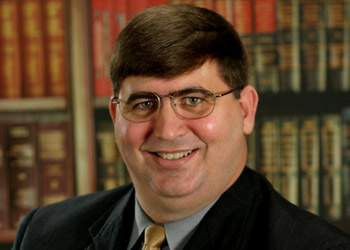Gordon Ford College of Business News
WKU Professor's Predictions for the Investment Advisory Profession Published
- Dr. Ron Rhoades
- Monday, November 4th, 2019

The financial planning and investment advisory profession is being transformed by a confluence of new developments. New regulations have emerged, and will likely soon be strengthened, governing the standards of conduct of personal financial advisors. Technological innovations drive both efficiency in serving clients and improvements in the advice provided. The increased complexity of investment strategies and investment product offerings bring new challenges for investment due diligence. Tax law changes will likely occur that will alter many tax-efficient investment techniques used today. And methods of advisor compensation continue to change, away from product-based compensation and toward hourly fees and annual flat fees.
In a new article published in Investment Advisor magazine, Dr. Ron A. Rhoades, Director of the Personal Financial Planning Program at WKU and an assistant professor of Finance, provided 18 predictions for the future of Registered Investment Advisers. He predicts much stronger application of fiduciary standards of conduct in the futures, requiring increased levels of investment due diligence and the avoidance of most conflicts of interest. Dr. Rhoades also predicted that mutual fund and ETF fees will decline, and that increasingly clients will seek out advisors who charge a flat fee (paid quarterly or monthly) rather than a percentage based on the amount of investment assets managed by the advisor.
Dr. Rhoades also noted that new technological developments, along with lower trading costs, will lead to diversified portfolios of hundreds of individual stocks for many investors, and that mutual fund holdings and ETFs will eventually decline in utility. He also predicted that sales of high-cost variable annuities and fixed-index annuities will decline, as more and more financial advisers act as fiduciaries (“purchaser’s representatives”) than as product salespersons.
Dr. Rhoades also noted some potential threats to the development of the investment advisory profession, including the emergence of state-run retirement plans and the substantial influence of money in politics and, by extension, in legislative and regulatory developments. Tax law changes could someday see the consolidation of tax-deferred retirement plans into one form of plan. At the same time, tax-free vehicles, such as Roth IRAs, may end. Capital gains and losses might be forced to be recognized annually, rather than at the time of sale.
Read the article in Investment Advisor here: https://www.thinkadvisor.com/2019/10/29/what-lies-ahead-for-rias/
Contact: Dr. Ron Rhoades, (270) 745-4934


